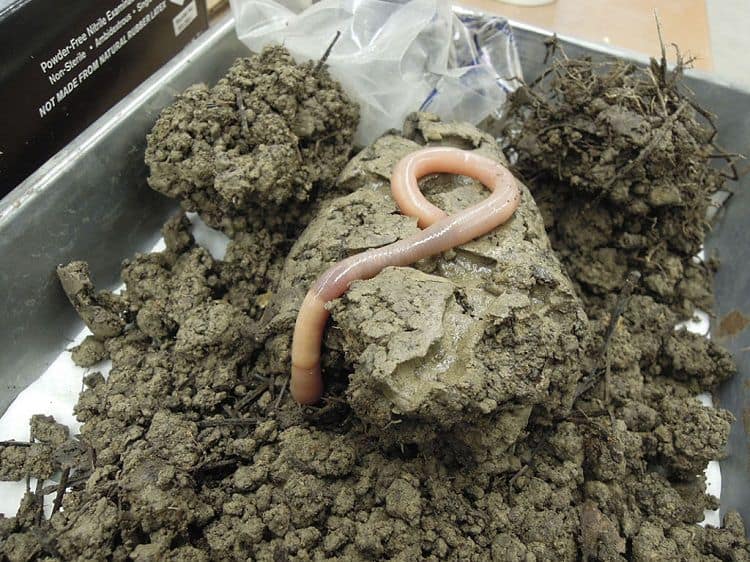Table of Contents
Worms are one of the lowest maintenance pets you could possibly have. They require very little care and attention, and they are inexpensive to obtain. Moreover, for those children who are fascinated by all things that crawl and wriggle, worms are a fantastic pet. And parents will love the fact that worms just love feasting on scraps from the kitchen, so there is no food source outlay involved at all.
What Do Worms Like to Eat Most?
Although worms enjoy lots of different food types, there are those that are their absolute favorites. Worms enjoy consuming fruits high in natural sugars that break down quickly such as cantaloupe, watermelon, honeydew, squash, and pumpkin. They also like to feed on things such as banana peels, apple cores, carrot peelings, kale, lettuce, and potato skins.
The fact that worms will consume most kitchen waste is great news for some, but this does not mean that you should use your worm habitat as a waste bin. There are certain foods that you should avoid feeding your worms in high quantities, particularly meat, bones and any oily or greasy food. Citrus fruit should also be avoided, as well as vegetables such as onion, garlic, and leeks.
In addition to fruit and vegetable waste, you could even feed your worms on things like scarps of cardboard, plain paper (avoiding glossy varieties), eggshells, tea bags, and used coffee grounds.
How Often Should You Feed Your Worms?
There is a temptation to feed worms as and when kitchen scraps become available, but overfeeding is not a good idea. A worm can consume its own body weight in food every day, so depending on how many worms you have, you should only feed the same volume of food that you have worms.
To begin with, feed small amounts of food at a time. Make sure that any uneaten food has not been buried deeper than 5cm and only add more food when you see that the worms have eaten what has already been provided. It is important not to allow uneaten food to accumulate. Also, it is easier for worms to digest food that has been chopped into smaller pieces, so this is something that you could get into the habit of doing before feeding it to them.
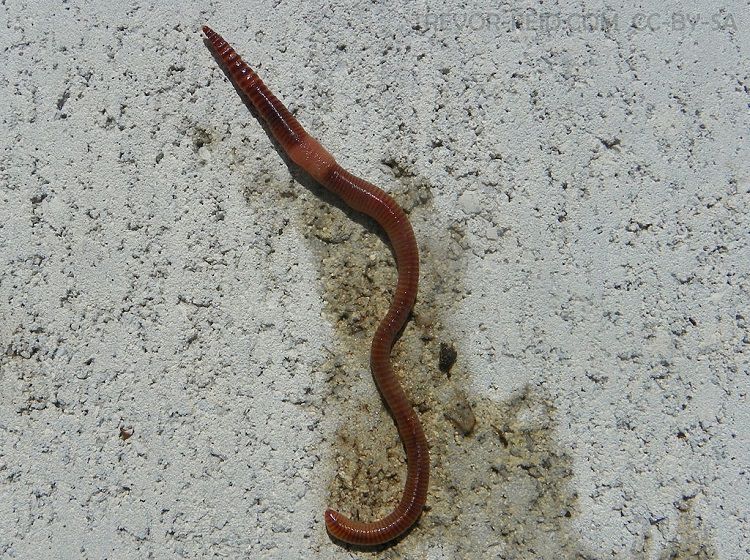
European Nightcrawler 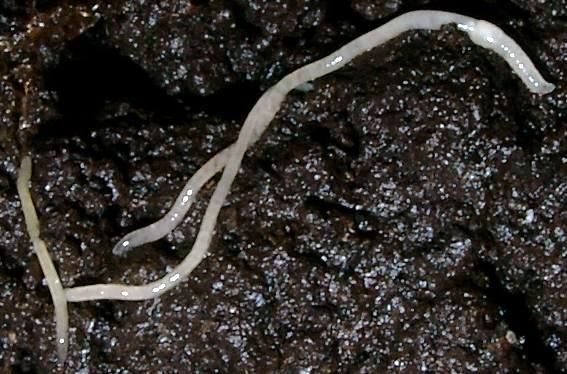
Enchytraeus albidus 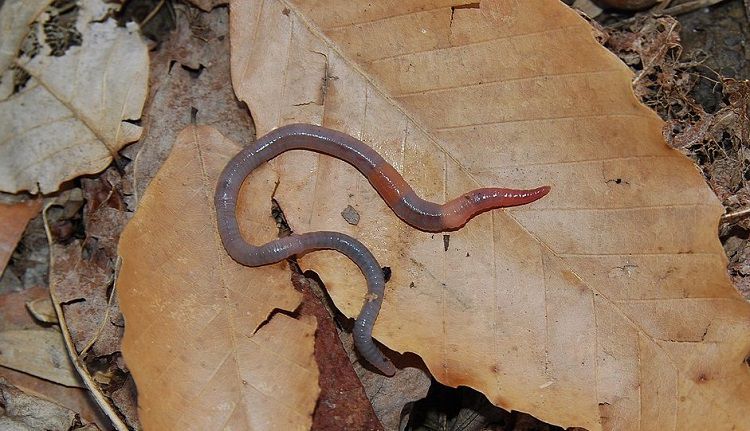
Aporrectodea caliginosa
Why Aren’t My Worms Eating?
Healthy worms will usually consume the food that has been placed in their habitat quite quickly, so if you notice that food is accumulating without signs of being eaten, you will naturally be concerned as to why your worms have stopped eating.
will usually consume the food that has been placed in their habitat quite quickly, so if you notice that food is accumulating without signs of being eaten, you will naturally be concerned as to why your worms have stopped eating.
You may be surprised to hear that the environment in which the worms are being kept can affect their appetite. Improper moisture levels in the habitat is probably the most common reason for worms to stop eating. If the soil is too dry, the worms will become dehydrated and will start to shrivel up. Without intervention on your part, this will lead to death.
If the soil is too wet, the worms will likely move to the top to avoid the moisture, which can also affect their ability to thrive. You might even see that they are trying to escape. While the soil in a worm habitat should be moist, it should not be saturated.
The pH levels of your worm’s habitat can also be a problem. This issue is almost always caused by feeding certain foods to the worms. Remember, the worm habitat is not a food or general waste bin. While these creatures do love to eat scraps and convert what they eat to compost, if you are feeding them the wrong food then it can result in changing pH levels, which will then affect the wellbeing of the worms. As already mentioned, it is best to avoid meat and citrus, but you should also avoid dairy products such as cheese.
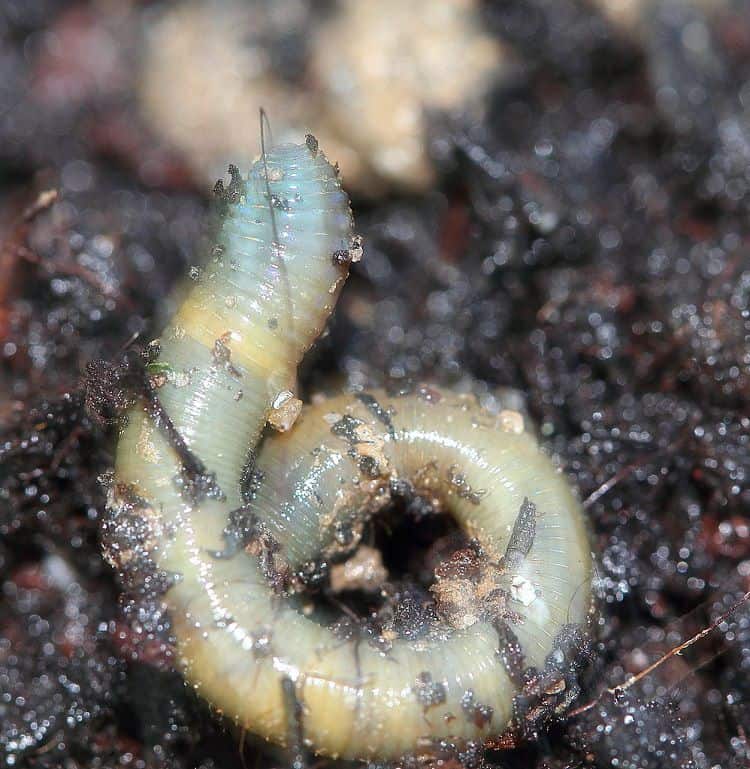
If you are worried that pH levels might be the cause of your worms not eating, you can buy a pH meter to check the levels to ensure your pets are in a suitable environment at all times. Click here for a selection of pH meters on Amazon, if you are interested.
for a selection of pH meters on Amazon, if you are interested.
Conclusion
Worms make great pets, particularly for children. Having a pet worm will give them a sense of ownership and responsibility. Worms are easy to care for and as long as they are fed the right foods, they will produce natural fertilizer that parents can then use for their plants. It is a win-win all round!
Photo Credits:
- Featured Image (Giant Palouse Earthworm): Chris Baugher
 – This file is licensed under the Creative Commons
– This file is licensed under the Creative Commons Attribution-Share Alike 2.0 Unported
Attribution-Share Alike 2.0 Unported license.
license. - Allolobophora chlorotica HC2: Holger Casselmann
 – This file is licensed under the Creative Commons
– This file is licensed under the Creative Commons Attribution-Share Alike 3.0 Unported
Attribution-Share Alike 3.0 Unported license.
license. - European Nightcrawler: Trevor Reid – This file is licensed under the Creative Commons
 Attribution-Share Alike 4.0 International
Attribution-Share Alike 4.0 International license.
license. - Aporrectodea caliginosa: Smithsonian Environmental Research Center
 – This file is licensed under the Creative Commons
– This file is licensed under the Creative Commons Attribution 2.0 Generic license.
Attribution 2.0 Generic license. - Enchytraeus albidus: Paul Bachhausen – This file is licensed under the Creative Commons
 Attribution-Share Alike 3.0 Germany
Attribution-Share Alike 3.0 Germany license.
license.

